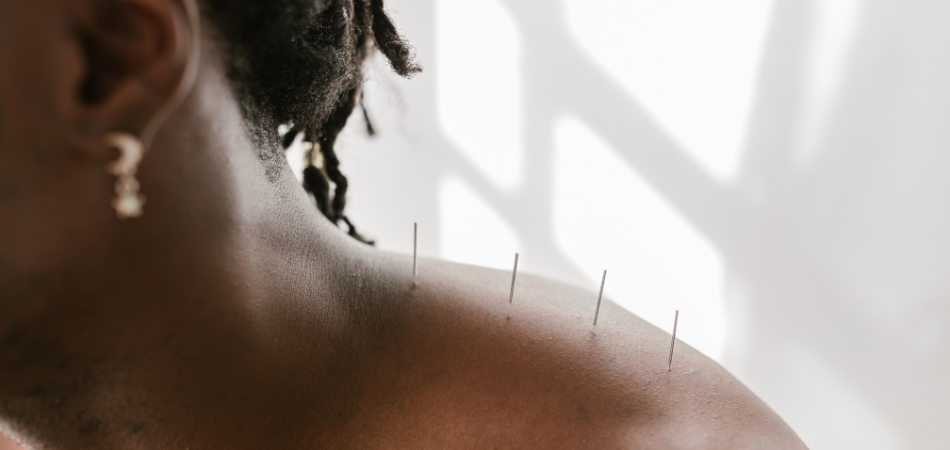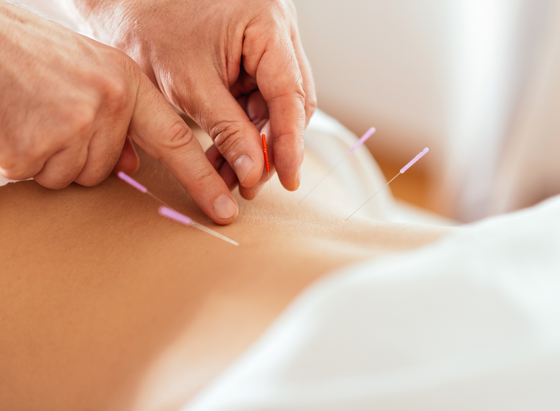Accupuncture

Written by:
Last Updated:
March 10th, 2025
Acupuncture involves the insertion of thin needles into specific points of the body. These points are believed to be connected to the nervous system and the release of endorphins, which can help to alleviate pain and improve mood. Many addiction experts believe that acupuncture can be an effective tool in managing withdrawal symptoms and reducing cravings as part of a comprehensive treatment plan for drug addiction, alcohol addiction and behavioural addiction.
Acupuncture for addiction treatment
In recent years, acupuncture has been gaining popularity as a proven and effective treatment for addiction. Acupuncture can be used alone or in conjunction with other forms of addiction counselling and treatment and is thought to reduce cravings, withdrawal symptoms and withdrawal-related pain.
Some people are wary of acupuncture or are afraid that it is going to be uncomfortable or painful. In fact, many of our clients have never experienced acupuncture before coming to rehab. Our highly-trained and experienced acupuncture therapists are well aware of people’s worries and will talk you through each stage of the process step-by-step.
It is important to keep an open mind and to understand that acupuncture therapy really can make a massive difference to your recovery potential. In fact, many people go on to undergo regular acupuncture sessions long after they have left rehab.
What are the different forms of acupuncture therapy?
There are several different forms of acupuncture that can be used in addiction therapy, each with its own set of benefits:
Auricular acupuncture
One form of acupuncture that is commonly used in rehab, including in Sanctuary Lodge, is auricular acupuncture. It is used to help reduce cravings and withdrawal symptoms and has been shown to be effective in treating a number of different substance addictions.
Our expert acupuncture therapist, Julie Quiery, explains auricular acupuncture works at Sanctuary Lodge:
“Auricular acupuncture or ear acupuncture as it is also known uses specific fine needles to stimulate your body to relieve muscle tension aiding relaxation. Auricular acupuncture helps reduce withdrawal symptoms of an addictive substance and is used in relapse prevention. Acupuncture promotes the healing of internal organs. Stress, anxiety, blood pressure, and pain may be reduced, and sleep improved. Seeds may be used on a small adhesive band-aid on the specific area of the ear to be gently massaged in a circular motion at that ear reflex point as an alternative to needles or after treatment sessions.”
Electroacupuncture
Electroacupuncture, as you can probably guess from its name, uses electrical impulses to stimulate pressure points. While this may sound scary, the electrical currents are very low voltage so they are completely safe and painless. Electroacupuncture is thought to help increase levels of endorphins, which can help to reduce pain and craving levels.
Body acupuncture
Body acupuncture is a type of acupuncture that uses needles to stimulate points on the body. It is based on the belief that this can help to improve the flow of energy and balance the body. Body acupuncture has been shown to be particularly effective in treating addiction and can help to reduce cravings and withdrawal symptoms. It can also help to improve sleep, increase energy levels, and reduce stress, all of which are very important in successful addiction recovery.
How do acupuncture and addiction treatment therapies work together?
There are various different addiction therapies which can be complemented by auricular acupuncture. For example, Cognitive Behavioural Therapy (CBT) can be used to help individuals in addiction recovery learn how to manage their thoughts and emotions better. Auricular acupuncture can help with this because it can help to calm you down and ease anxiety. It can also help to improve focus and concentration, which can be helpful in CBT sessions.
Another therapy which can be complemented by auricular acupuncture is Eye Movement Desensitisation and Reprocessing (EMDR). This therapy is often used to help people who have experienced trauma (a common cause of addiction). It can be difficult to process the emotions associated with trauma, but auricular acupuncture can help to ease some of these emotions. This can make it easier for you to talk about your experiences in EMDR sessions.
How can acupuncture help you after you leave rehab?
If you received acupuncture during your time in addiction rehab, you may have noticed benefits such as reduced cravings, improved sleep, and increased energy levels. These benefits can continue after you leave rehab, helping you to stay on track with your recovery. In addition, regular acupuncture treatments can help to reduce stress and improve overall well-being, both of which are essential for long-term sobriety because it is during stressful or difficult moments when relapse is most likely to occur.
Frequently asked questions
Disclaimer:
The availability of therapies may vary across UKAT centres. The specific therapies provided will be determined based on your treatment plan and the programme offered at your chosen facility. All treatments are subject to clinical assessment and programme availability at the time of admission. For further details on the therapies included in your treatment plan, please contact our admissions team.




